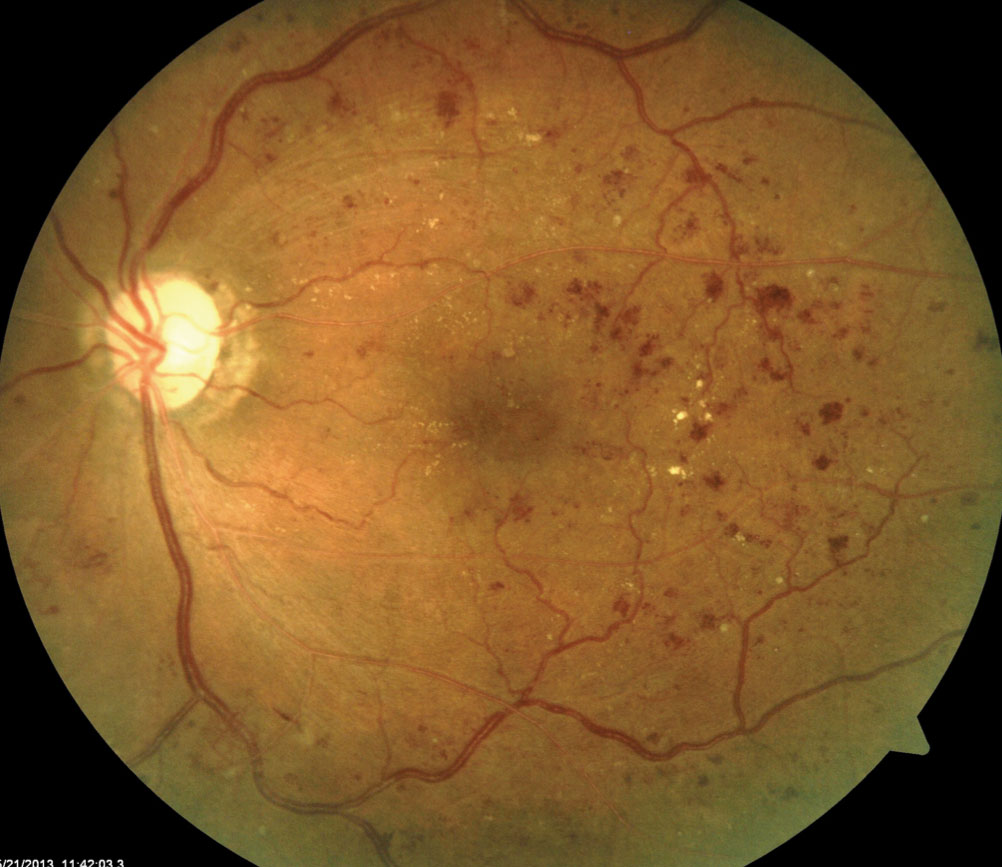RETINAL DISORDERS
With the increase in incidence of diabetes and increase in life expectancy, the risk of retinal disorders such as diabetic retinopathy and age related macular degeneration has gone up. In some cases, the damage caused to the eye is irreversible. Therefore, it's important to identify retinal disorders before they grow to vision threatening stage. Patients suffering from diabetes, high blood pressure, heart conditions etc. should undergo regular dilated retina examination.
Diabetic retinopathy
Diabetes mellitus is a metabolic disease caused by increasing levels of sugar in the blood. In the longterm, this condition mainly affects kidneys, the nerves and the eyes. Diabetes, particularly affects the capillary cells of retinal vessels and impairs their functioning.
People with diabetes, whether young or older, should have their eyes checked for early detection of diabetic retinopathy.
In diabetes, even when the retina is normal, an eye examination is recommended annually. Once retinopathy developed, the patient should be kept under observation for 3-4 months, during which time treatment should be applied to decrease blood sugar level.
Intra vitreal injections of Lucentis, Avastin, Orzudex and others and laser photocoagulation can often help in halting progression or reversing the disease pathology in diabetic retinopathy.
Age Related Macular Degeneration
Age-related macular damage macular degeneration, is retinal damage occurring in the center of vision. It is quite common in old age patients (> 55 years).
Vision gradually decreases over time and the center of the field of vision becomes dark as a black spot. Although a complete blindness does not occur around the black spot, the condition is adversely affecting the patient’s life.
Intra-vitreal Anti-VEGF injection remains the mainstay of the treatment.
Vascular Occlusions
An occlusion occurs when one of the veins or arteries carrying blood to or from the retina becomes blocked or contains a blood clot. The blockage could occur in the main vein or artery or their branches. A blockage in the vein or artery of the retina can cause blood or other fluids to build up and inhibit the retina’s ability to filter light properly. When light is blocked or fluids are present, sudden loss of vision can occur. The severity of vision loss may be dependent upon where the blockage or clot occurred. Blockages in the main vein or artery are often more serious than blockages in the branch veins or arteries.
Occlusions can be managed by Intra-vitreal injections and Laser phtocoagulation.
